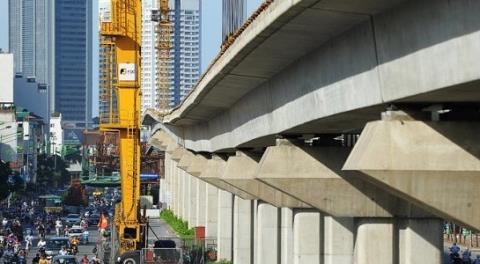China is pushing hard to build a new institution to accelerate cooperation among Asia Pacific countries. 
According to the Foreign Investment Agency (FIA), in the first two months of 2017, China registered $608 million worth of foreign direct investment (FDI) in Vietnam, accounting for 30 percent of total newly registered capital, making it the biggest foreign investor in Vietnam.
Singapore, the second biggest investor, registered capital of $167 million.
| In the first two months of 2017, China registered $608 million worth of foreign direct investment (FDI) in Vietnam, accounting for 30 percent of total newly registered capital, making it the biggest foreign investor in Vietnam. |
Luu Bich Ho, former head of the Development Strategy Institute, said the US administration under President Donald Trump has shown new strategies and policies towards Asia Pacific, which gives China a reason to promote its activities.
“China wants to increase investment to promote its role in the region not only in economic but also in political issues,” he commented.
After the US withdrew from the TPP, China began its push, especially after RCEP, an economic agreement between 10 ASEAN countries and other six countries, including China, was signed in 2012.
The world's second largest economy is also meeting difficulties and needs restructuring.
Nguyen Cong Nghiep, former Deputy Minister of Finance, commented that China may understand that investments in Vietnam could bring bigger benefits than investments in other countries and in China.
Nghiep noted that in 2015 and 2016, Chinese investors mostly poured capital into processing and manufacturing industries, developing production, electricity distribution, construction and real estate projects.
Nghiep doesn’t think China increased investments in Vietnam in recent years in order to take full advantage of the TPP agreement which it thought it would sign soon, but it is targeting economic benefits.
“Processing and manufacturing are industries which can bring high profits,” he explained. “China and Vietnam also have bilateral agreements which can bring benefits to it”.
However, Nghiep said it is necessary to find out what China will invest in the processing industry – will it try to make products for export, to bring back to China or to sell in Vietnam?
Low investment rate is a great advantage China has when making investment. Since Chinese equipment and machines are cheap, its products have low production costs and do not take much time to recover investment capital.
FDI in Vietnam reached US$3.4 billion in the first two months of the year, up 21.5 percent compared to the same period last year. Up to 47 localities nation-wide received FDI in two months. The southern province of Binh Duong took the lead with $791 million or 23.2 per cent of the total FDI registered in the country. It was followed by the capital city with $519 million and southern economic hub of HCMC with $464.2 million.
Mai Chi / vietnamnet